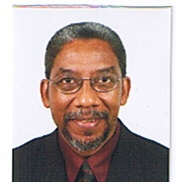 The Royal Prerogative has been defined as ‘The special rights, powers, and immunities to which the Crown alone is entitled under the common law.’. In the development of the British political system, there has been a pull and tug battle over the power exercised by the Monarch and that of the Parliament which came into being when the capitalist manufacturing class became the dominant power in the economic order. The Parliament and ‘Representative’ democracy replaced the rule of the Monarch which existed under the medieval power of the feudal lords. In the 1606 Case of Impositions the power of the king to impose duty on imported goods was challenged, but upheld by the Court. Parliament then passed a law, the Petition of Rights, so that taxes could only be imposed by Parliamentary decision. While Parliament prevailed to the extent that laws made by it (Acts) cannot be altered using prerogative powers, most of the residue of the powers of the monarch are now exercised by the Prime Minister and the Executive. In T&T, the survivals of the Monarchs powers have been shared between the President and Prime Minister under our Constitution, with some controls by Parliament. The summoning and proroguing of Parliament have fallen into the PM’s hands and has led to the Head of Government having election dates “in their back, side or other pockets”. The PM has exclusive power to appoint or fire Ministers and generally because of the majority in the Parliament, also controls the law-making agenda of Parliament. The President retains the assent to Bills and formally has power over the armed forces and declaration of states of emergency and even in granting of national awards. But, in most of the President’s functions, the decisions are really made by the Cabinet directed by the PM. So, the Prime Minister as Head of Government has inherited most of the powers that once belonged to the Monarch and determines the actions of the Parliament using his elected majority. The President, as Head of State, has been left with almost none of the powers which the Monarch possessed as Head of State of the old colonial power. Control of PrerogatIve Power in our ConsitUtion In the run-up to Independence in 1962, just one year after a very divisive election which involved violence and a state of emergency, the most consequential battle over the content of the Constitution ensued. While this involved a serious and contentious struggle over the limiting of the remnants of prerogative power in the hands of the Prime Minister, it has been presented in the narrative of our history as a battle of the races with the PNM and DLP, as ruling party and Opposition involved. The Constitution was drafted by the government unilaterally without consultation with the Opposition, and even the conduct of the Queen’s Hall conference was chaired by the PM in such a way as to keep the Opposition from meaningful contribution. The Opposition, and others in the society made an effort to place checks on the powers of the Prime Minister, to make the EBC more independent and to limit the monarchical prerogative power over the Public Service of the PM and Government through the Service Commissions, to have the Senate more independent and to increase the special majority for amendment of some parts of the Constitution 3/4 instead of 2/3. This was a constructive and legitimate fight for limiting the residual powers of the monarch in the hands of an all-powerful Prime Minister. It was only at the last minute, at the Marlborough House talks in London and with tensions in the country almost at boiling point that Williams relented and accepted many of the major points that the Opposition had been calling for. The concerns for limiting the power of the PM and Cabinet were presented in divisive racist terms to hide the real content of the struggle over the Constitutional provisions. What emerged was an arrangement with checks on the power to declare and continue States of Emergency, on the control over the electoral process, the Public Service and other aspects of prerogative powers in the hands of the PM and Cabinet. The Executive has never given up its desire and drive for more power since 1962. The Ministers have fought long and hard to wrench the power to hire and fire from the Service Commissions, demanding their abolition and undermining them with as much as 75% of the employees in Ministries and Agencies being now contract employees, not appointed by any Commission. The proposals for an Executive President which have surfaced on several occasions are aimed largely at consolidating all remaining prerogative power in a single office. The recent episodes of the Cabinet usurping of the procurement processes from the Port Authority Board and the HDC-CGGC contract fiasco are also elements of that yearning. The desire and machinations to consolidate the old monarchical powers in the single hand of an unrestricted political figure has been and remains a dangerous aspect of the development of our governance in the hope of returning to a medieval construct. This retrograde anti-democratic tendency toward autocratic rule must be resisted at all costs. Clyde Weatherhead A Citizen Fighting for Democratic Renewal of Our Society. 5 October 2019 Comments are closed.
|
AuthorI am a appalled at the loss of the simple skills of discussing ideas and sharing Opinions to DEEPEN ANALYSIS and UNDERSTAND DEVELOPMENTS to ARRIVE AT SOLUTIONS. Archives
April 2024
Categories |

About Clyde Weatherhead
Clyde has been involved in public life as a political activist, a trade unionist, Lawyer, Teacher and Author |
Connect With Clyde
Write to Clyde on Facebook Visit Clyde's Author Page on Amazon Go To Discussion on Facebook For Employment Relations Issues |

 RSS Feed
RSS Feed